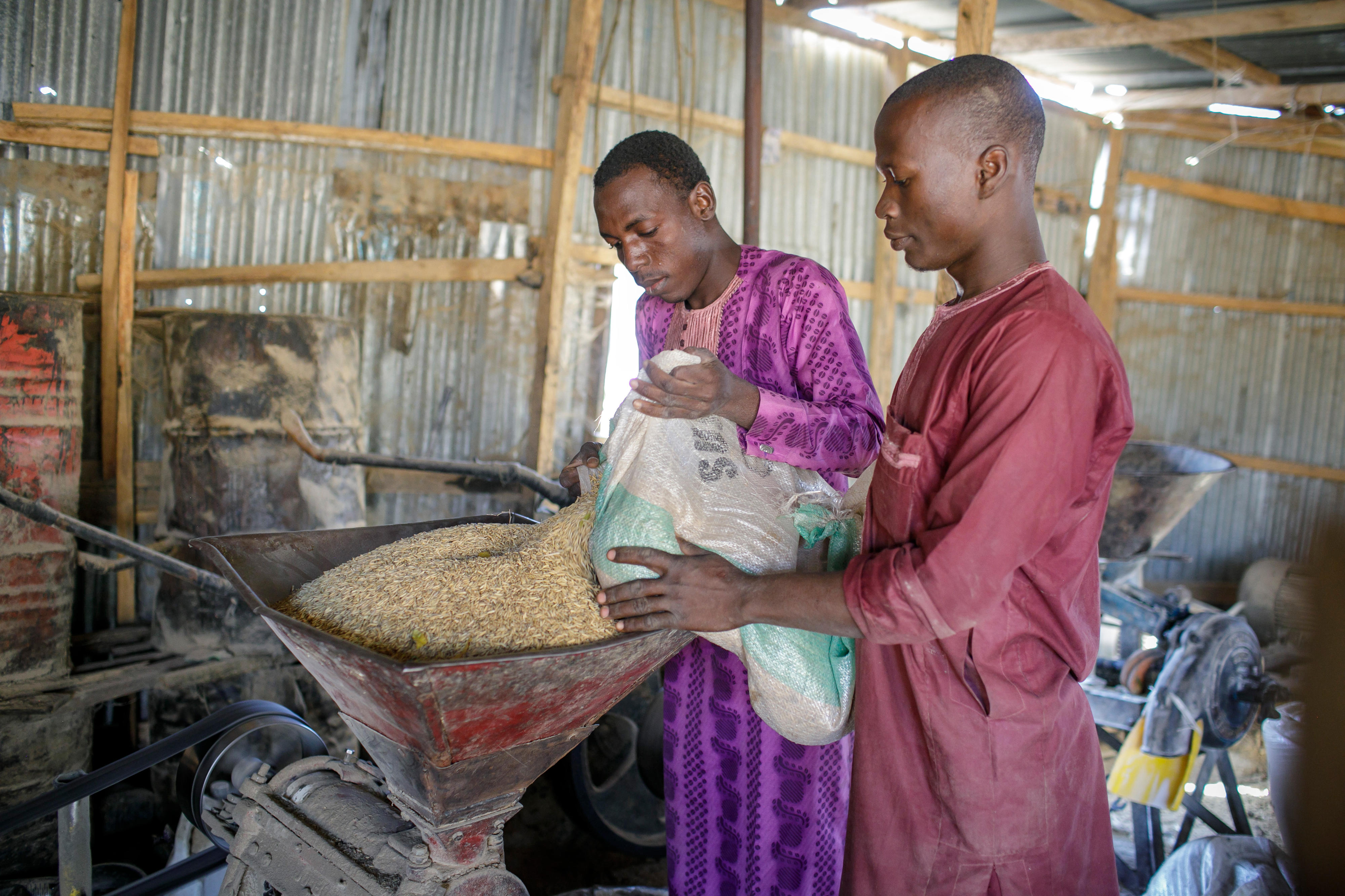Workers at a small rice mill in Jega, Nigeria
Copyright© Thomas Imo/photothek.net
Core area “Sustainable economic development, training and employment” Improving training and employment opportunities
There is a special focus on micro, small and medium-sized enterprises (MSMEs). They account for about half of Nigeria's gross domestic product and employ more than three quarters of the country's workers.
So far, Nigeria has focused very much on the extractive sector, which creates relatively few jobs. Sectors such as construction, the digital industry and agriculture, which might generate significantly more employment, have received less support. Simultaneously, there is a shortage of skilled and educated labour, as general and vocational schools have been teaching students only few of the skills that are needed in the labour market.
That is why development cooperation with Nigeria is addressing the following points:
- Improving the competitiveness of small enterprises. Germany is supporting public-private dialogue and the establishment of public advice centres for micro, small and medium-sized enterprises. Support is also being provided for digital skills development in order to give MSMEs access to new online markets and digital training programmes.
- Access to credit. In order to be able to invest in their businesses and in new jobs, and in order to improve their competitiveness, MSMEs need suitable credit programmes. Germany is providing advice to the Development Bank of Nigeria and other financial service providers with regard to the development of relevant products, and is making available reduced-interest loans.
- Development partnerships with the private sector are being supported via the develoPPP programme.
- Support for high-quality, relevant vocational training. In order to improve the job prospects of young women and men, Nigeria and Germany are jointly developing training programmes in the fields of agriculture, construction and manufacturing, and they are piloting innovative models for school and non-school training. Support is also being provided to activities in the field of labour market policy, for instance job and work experience placement services, the organisation of career fairs, and the establishment of employment agencies and vocational guidance centres.
- Establishment of a digiCenter. In large cities such as Lagos and Abuja, there is a dynamic start-up scene with many digital businesses. However, in large parts of the country there is a lack of digital infrastructure and IT specialists. The BMZ is assisting the Nigerian government in implementing strategies for the digital transformation of the economy. It is also supporting the establishment of a digiCenter that will facilitate networking between research institutions and digital sector businesses, and provide training for adolescents and young adults.
- Return and reintegration support. Centres for migration and development in Lagos, Abuja, Benin City and Nyana are providing information on options for regular labour and education migration and assisting returnees in their efforts to reintegrate into the local economy and society.
As at: 02/02/2024
